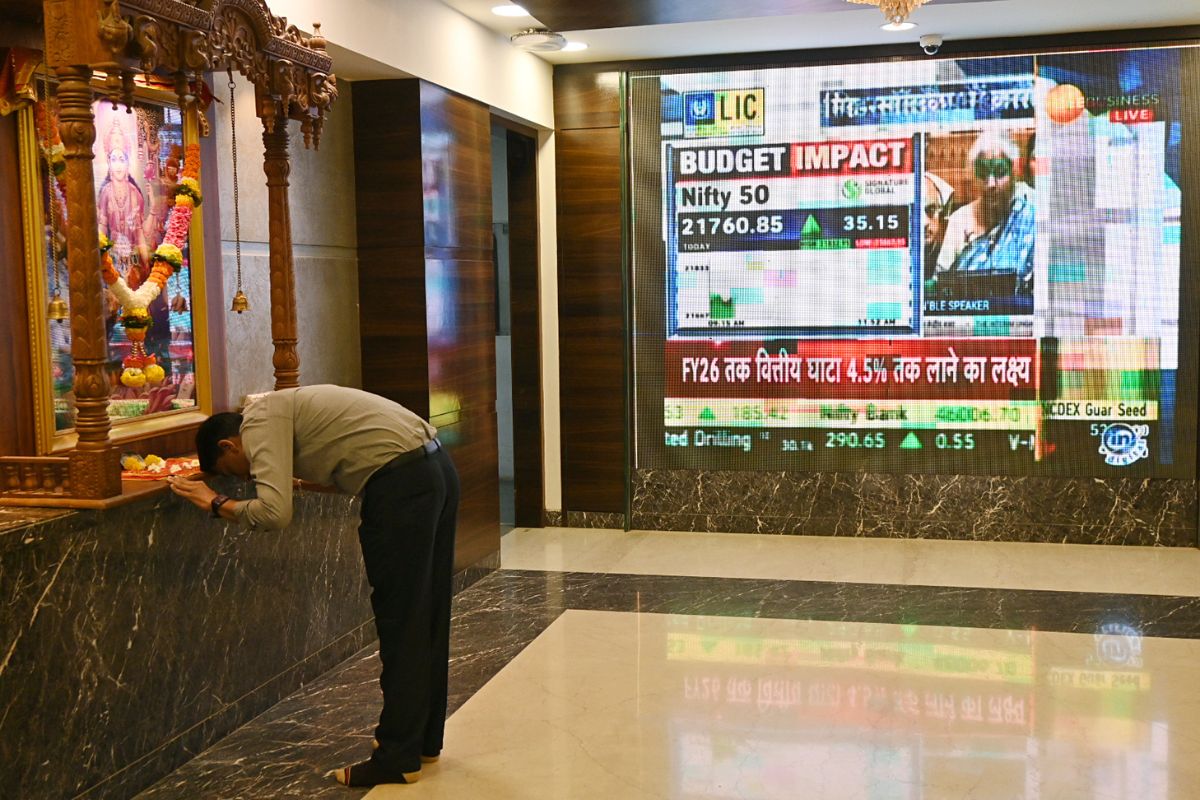President Murmu feeds customary ‘dahi-cheeni’ to FM Sitharaman
Ahead of presenting the Union Budget in Parliament, Finance Minister Nirmala Sitharaman met President Droupadi Murmu in the Rashtrapati Bhawan on Saturday.
This is expected to benefit about one crore tax-payers.

Coming as a relief to taxpayers grappling with outstanding tax demands, Finance Minister Nirmala Sitharaman on Thursday announced a resolution scheme for disputed direct tax demand dating back to even 1962.
In line with the Government’s vision to improve ease of living and ease of doing business, and to provide a relief to a large number of petty, non-verified, non-reconciled or disputed direct tax demands, many of them dating as far back as the year 1962, Sitharaman proposed to withdraw such outstanding direct tax demands up to Rs 25,000 pertaining to the period up to financial year 2009-10 and up to Rs 10,000 for financial years 2010-11 to 2014-15.
Advertisement
This is expected to benefit about one crore tax-payers.
Advertisement
It is worth highlighting that the outstanding tax demands were creating a hurdle in the issuance of refunds to taxpayers as the income tax department was not processing complete refunds for the ongoing assessment year if the taxpayers had pending demands from previous years.
Asserting the significance of GST, Finance Minister Nirmala Sitharaman in her budget speech said the taxation system has reduced the compliance burden on trade and industry.
GST has unified the highly fragmented indirect tax regime in India, she said.
Citing a recent survey conducted by a leading consulting firm, she said 94 per cent of industry leaders view the transition to GST as largely positive and according to 80 per cent of the respondents, it has led to supply chain optimisation.
Sitharaman further added that at the same time, the tax base of GST more than doubled and the average monthly gross GST collection has almost doubled to Rs 1.66 lakh crore this year.
Talking about the increased revenue of States, the Finance Minister said that States’ SGST revenue, including compensation released to states, in the post-GST period of 2017-18 to 2022-23, has achieved a buoyancy of 1.22.
In contrast, the tax buoyancy of State revenues from subsumed taxes in the pre-GST four-year period of 2012-13 to 2015-16 was a mere 0.72, she added.
The Union Finance Minister asserted that the biggest beneficiaries are the consumers, as reduction in logistics costs and taxes have brought down prices of most goods and services.
Quoting the National Time Release Studies, the Minister said that the steps taken in Customs to facilitate international trade has resulted in a decline in the import release time by 47 per cent to 71 hours at Inland Container Depots, by 28 per cent to 44 hours at air cargo complexes and by 27 per cent to 85 hours at sea ports, over the last four years since 2019.
Notably, the Finance Minister did not propose any changes relating to taxation and retained the same tax rates for direct taxes and indirect taxes including import duties.
She proposed to extend certain tax benefits to start-ups and investments made by sovereign wealth or pension funds and tax exemption on certain income of some IFSC units till March 31, 2025.
Advertisement